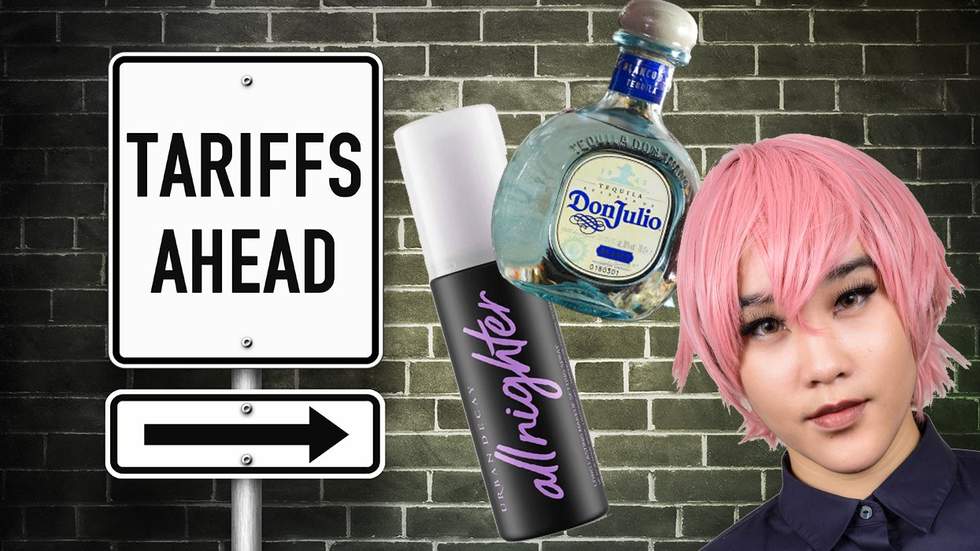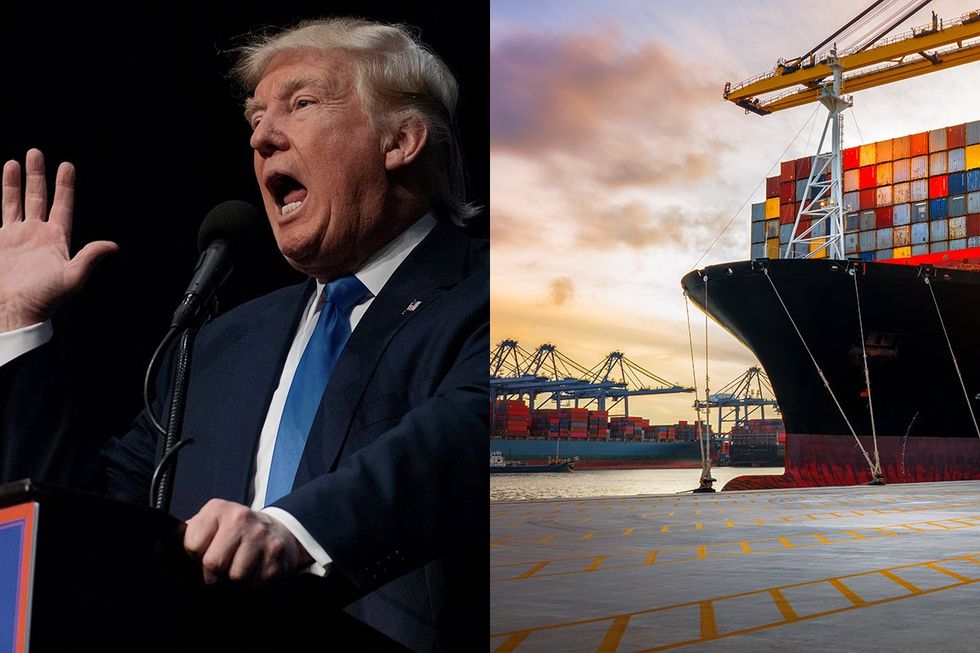
President Trump's tariff plans may cause businesses and consumers to feel the brunt of his trade policy.
mark reinstein/shutterstock; GreenOak via shutterstock
Like designer knock-offs, tariffs may look like they mean business. But how quickly do they fall apart at the seams?
On April 2nd, President Donald Trump new tariffs on all countries. Celebrating the move at his "Liberation Day" event, a baseline tariff of 10% on all imports, with higher rates for some countries in a renewed "declaration of economic independence," according to the president. However, as ABC News points out, these actions don't impact foreign companies but domestic businesses, consumers, and market. On April 3rd, CNBC reported the worst drop for U.S stock indexes since 2020, attributed directly to Trump's tariffs plans.
There's never a winner in trade wars: consumers' wallets are hit hard the most, forcing many to rethink spending habits.
What Are Tariffs?
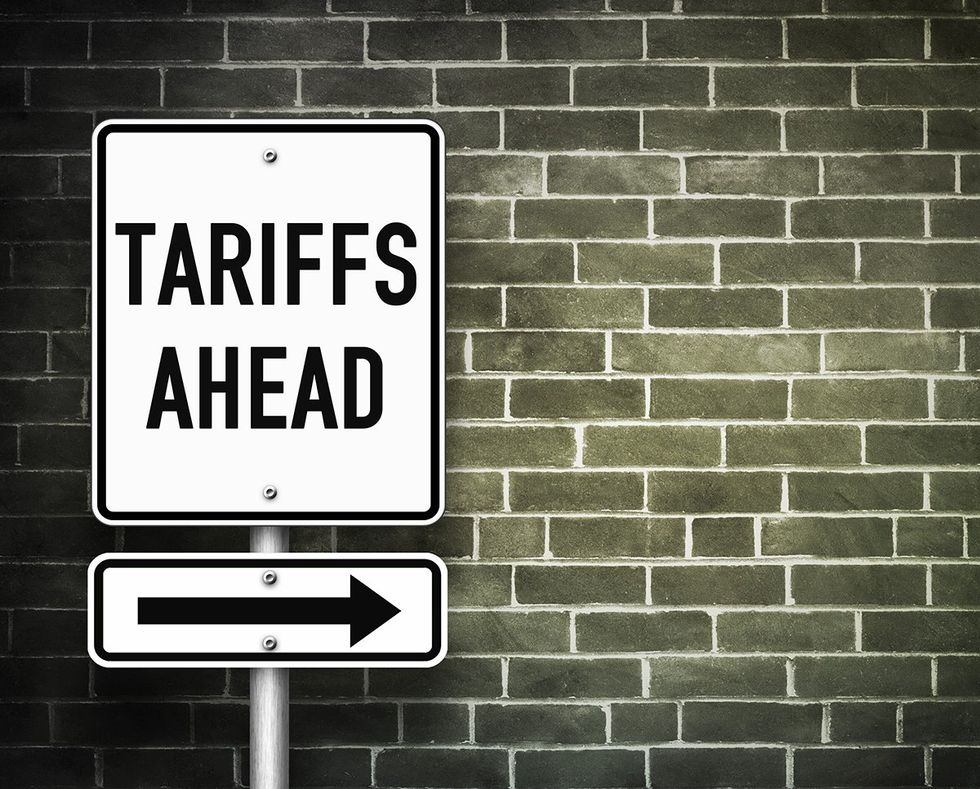
Tariffs: "Economic independence" or a move that would bring an economic recession?
shutterstock creative
"Tariffs are often touted as a protective measure for domestic industries," explains David Fritch, a registered investment advisor and CPA with over four decades of experience. "But the reality is that ramping up local production capacity can take considerable time." Even when goods are not wholly made externally, tariffs also increase the cost of resources for businesses, both big and small. While Trump guarantees that tariffs will be paid by the companies exporting their goods, that's not the case. Ultimately, it's the company and consumers importing goods; tariffs cause businesses to "reassess their supply chain strategies," Fritch says, "and even forcing some to pass costs onto consumers."
Electronics: From Playstations to iPhones
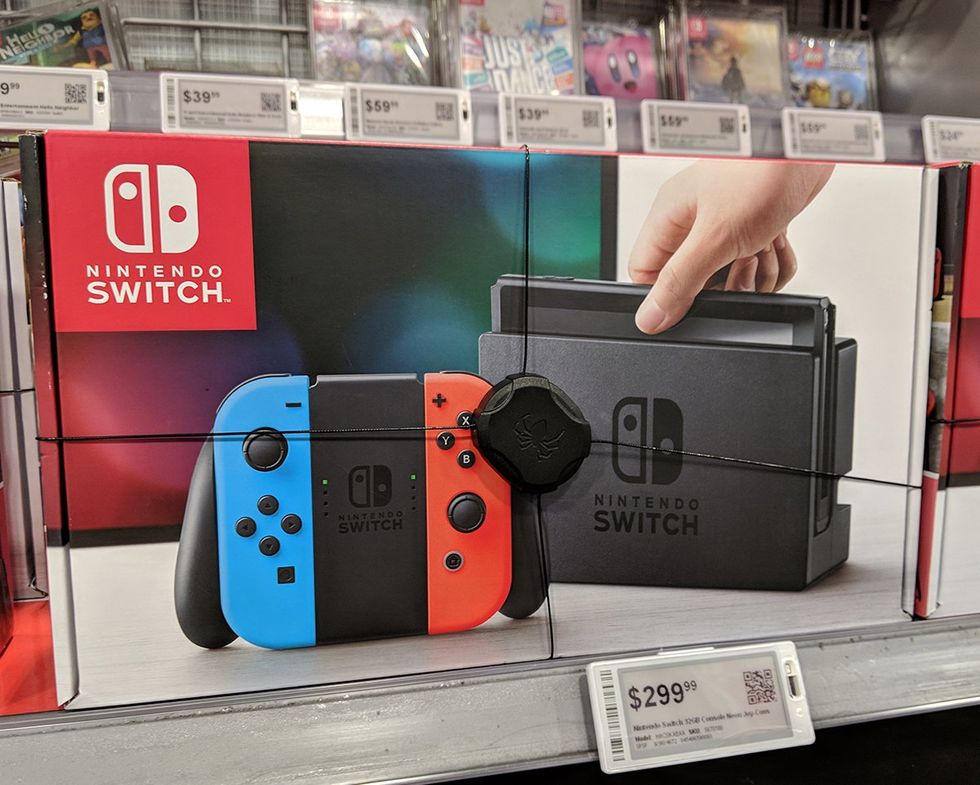
Many electronics are produced overseas.
Eric Broder Van Dyke/shutterstock
It's no secret that our gadgets are global jet-setters before they even hit the shelves. PlayStations are born from the minds of Sony in Japan, though they are assembled partly in China. And that shiny iPhone in your hand? It's as American as apple pie…if it came from a bakery in Shenzen, China. Your next binge-worthy gaming console or phone upgrade might have a higher price tag.
Fashion and Flair: Clothing and Wigs

Fast fashion and wigs may come with higher price tags in 2025.
shutterstock creative
For those on a shopping budget or jumping into the latest aesthetic trend, the Chinese fast-fashion mogul Shein is about to stretch your wallet. And like their elastic waistbands, expect a price increase from other clothing manufacturers based in China. In need of a new wig to go with your style? Well, you'll may have to pay a higher premium, as many wig producers and suppliers are Chinese-based.
Those red-bottomed heels will also see a sharp increase, as luxury shoe designers like Christian Louboutin are produced elsewhere.
The Vanity Set: Makeup, Perfume, and Fillers
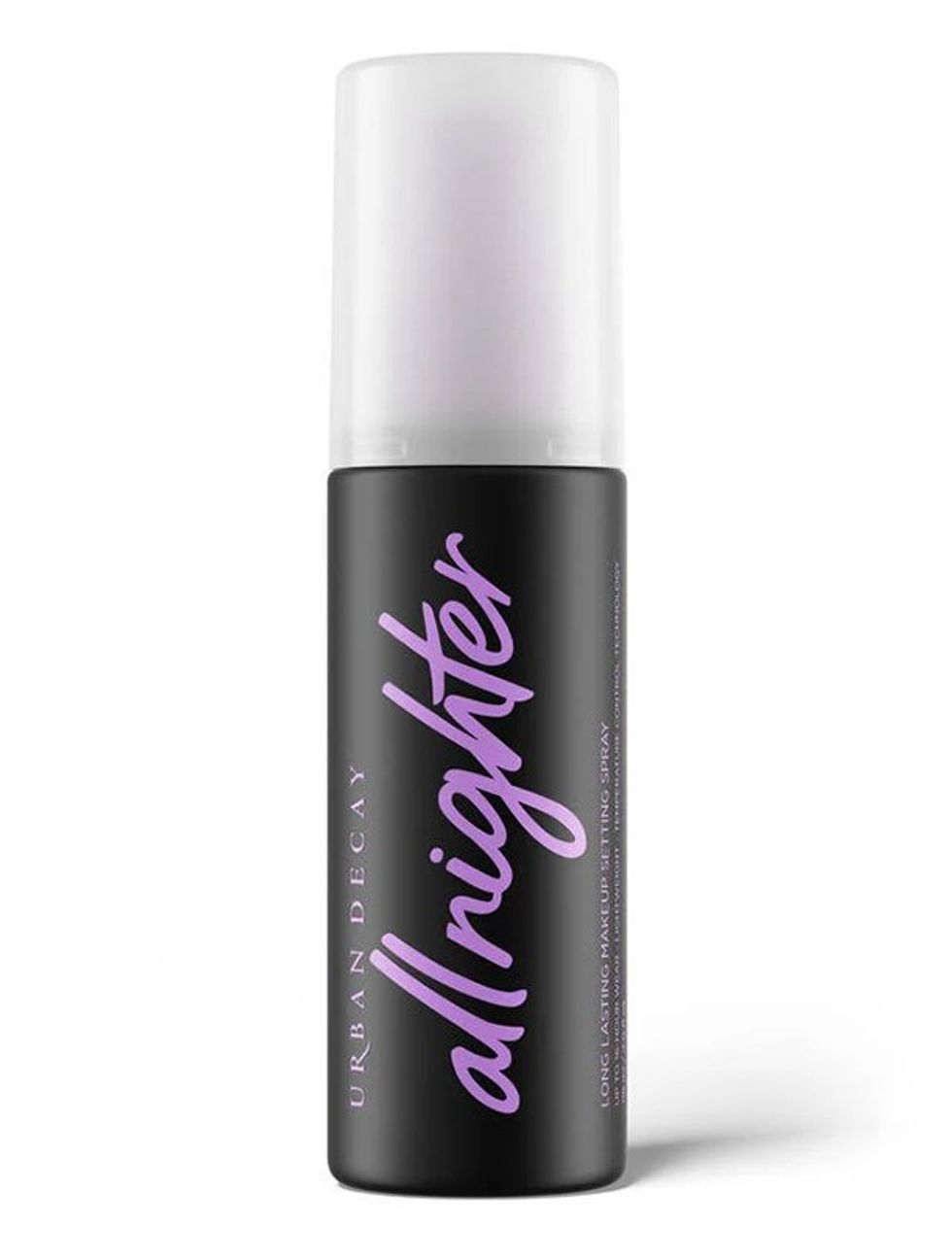
Leading makeup brands like Urban Decay are produced outside the U.S.
urban decay
Our beauty essentials are also under attack. Brands like MAC Cosmetics, NARS, and Urban Decay make some or all of their products in Canada. In contrast, other brands like L'Oréal are sourced from several countries, including Mexico. And your perfume and fillers? Sadly, brands like Baccarat Rouge 540 and Juvéderm are made in Europe.
Whether wholly imported or sourcing foreign-made materials, you may expect a higher price when it comes to cosmetics and perfumes. But let's face it, glowing skin is non-negotiable.
Booze and Beans: Imported Liquor & Coffee

The next pour at a bar or restaurant may cost you a little bit more.
Kester Urwin/shutterstock
When you're sipping on Espolon, Patron, Don Julio, and Jose Cuervo, expect to pay an extra few bucks at your favorite bar. But suppose you choose a shot of Jameson or a sidecar of Hennessy. In that case, these libations are currently safe from tariff woes.
And what about coffee? Yes, that will get a little bit costlier, due to the baseline tariff rate of 10%.
Trade Wars: Who Will Hurt The Most?

shutterstock creative
Donald Trump's proposal is already sparking a range of responses, with threats of retaliation from the leaders of the U.S.'s three largest trade partners.
Wars, even trade ones, have no victors.
Who would be caught in this international game of cat and mouse? We will. Consumers will undoubtedly fork out higher prices for our goods: be it furniture, electronics, clothing, or our favorite makeup or wig brands. Tech upgrades, closet staples, and the occasional indulgence may take a backseat these next few years until the Trump administration reverses its tariff policy. In the meantime, I'll patiently await the holiday sales.
Eyeing my shopping cart like a financial advisor reading over my monthly expenses.
Marie-Adélina de la Ferrière is the Community Editor at equalpride, publisher of The Advocate.
Voices is dedicated to featuring a wide range of inspiring personal stories and impactful opinions from the LGBTQ+ and Allied community. Visit advocate.com/submit to learn more about submission guidelines. We welcome your thoughts and feedback on any of our stories. Email us at voices@equalpride.com. Views expressed in Voices stories are those of the guest writers, columnists and editors, and do not directly represent the views of The Advocate or our parent company, equalpride.

